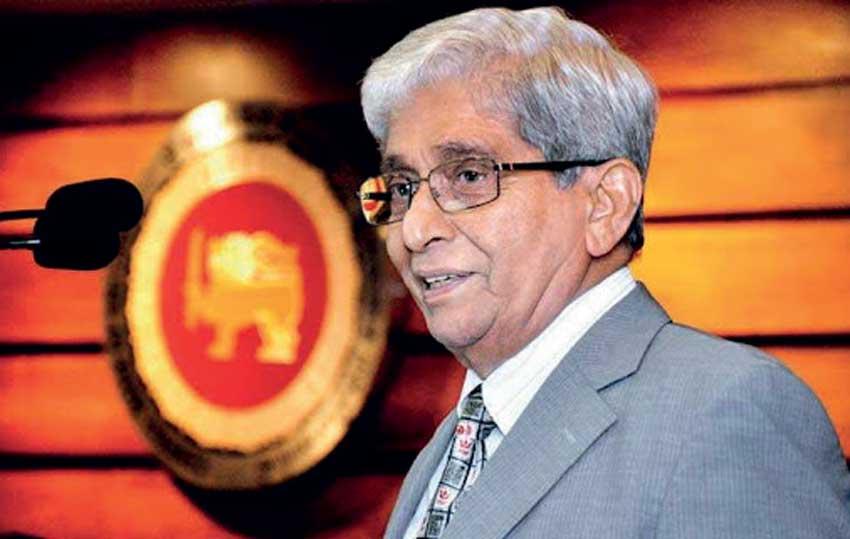08 Apr 2020 - {{hitsCtrl.values.hits}}

Prof. W.D. Lakshman
As COVID-19 is expected to alter everything from geo-politics to national security to trade and industrial policies of countries, the Central Bank Governor Prof. W.D. Lakshman says the neoliberalism— the economic system, which shaped much of the world order during the last half-century could be shaken and withered away once the world overcomes the pandemic.
Speaking at a live television discussion recently, Prof. Lakshman said while he did not expect a complete retreat of the liberal and the globalised world order, most likely there would be some re-setting in the period to come.
“By this I wouldn’t say self-sufficiency but a system more inclined towards self-reliance,” he said.
The new coronavirus pandemic has shown how fragile and vulnerable the world economies are when global and regional supply chains are interrupted.
It has also exposed how dangerously the countries, including Sri Lanka, have become over-reliant on other countries for even some basic needs such as food and medicine.
The backlash against the neoliberal and globalised world order characterized by trade liberalization and open borders, advocated by classical economists and globalists, has amplified during the last decade, predominantly following the 2008 global financial crisis.
However, the same system also helped low-cost production and highly efficient capital markets and lifted scores of people out of poverty and helped many millions of others with upward social mobility.
Yet, a more recent phenomenon was that trade became highly skewed in favour of countries with low-cost of labour and the argument strengthened for producing or importing from the lowest cost producing nations.
“At least in the short-term, the libertarian toolkit has to be put to one side as there is clear rationale for short-term intervention given the massive unanticipated shock,” said Razeen Sally, a Professor at the Lee Kuan Yew School of Public Policy at the National University of Singapore and a strong advocate of trade liberalization.
“In terms of discerning a pattern, the short-term economic cost is followed by lasting structural changes, lasting for decades or even for centuries, in societies, in economies and in international politics. And I suspect we might see something similar in this pandemic,” Sally said in reference to past pandemics, the worst being the Spanish flu in 1918 and other crises such as World War II.
Speaking at a panel discussion on the economic impact of COVID-19 organised by Advocata Institute via a videoconference, he said the changes that are underway in the world in politics and economics would probably be accelerated from now on.
As there are no atheists in foxholes, the world is also seeing that there aren’t any free traders in a pandemic as Germany, which was quick to castigate any one who puts their country first and build walls, two weeks ago announced a ban on the exports of surgical masks, which were already on the way to neighbouring countries.
17 Nov 2024 1 hours ago
16 Nov 2024 6 hours ago
16 Nov 2024 7 hours ago
16 Nov 2024 8 hours ago
16 Nov 2024 8 hours ago